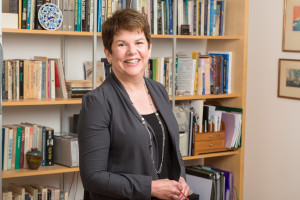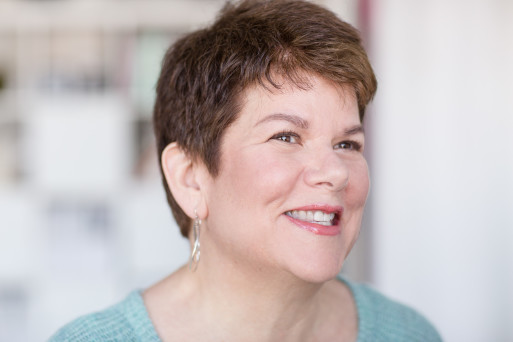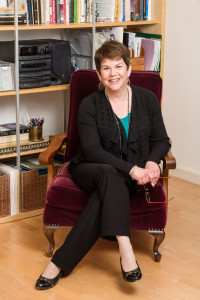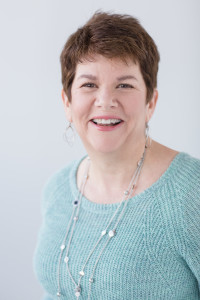Dr. Linden works as the president of Tree of Life Health Advocates from her office in San Francisco. Her organization serves clients in the Bay Area, Monterey County and other areas of the country via phone or video chat. Learn more about her organization and how they can help you or a loved one by visiting their official website.

Dr. Ruth Linden
(Credit: treeoflifehealthadvocates.com)
Marissa: Thanks for taking the time to chat with us today. When did you decide to become a health advocate?
Ruth: In retrospect, it seems I’ve been doing the work of health advocacy for most of my adult life — overseeing friends’ care during their hospitalizations and helping to sort out treatment options. When I was a research fellow in U.C. San Francisco’s Bioethics Program, I began to accompany a dear friend to her chemotherapy infusions in the outpatient clinics across the street from my office. That was almost 35 years ago. Of course, we didn’t have the term “health advocate” at that time.
Marissa: What made you want to do this type of work?
Ruth: Health advocacy chose me; I can’t honestly say that I chose it. Unlike many of my colleagues, I have worked in and around healthcare for my entire career as a professor, researcher and activist. Healthcare justice is my passion. I “get” how doctors think and how health systems are organized. My work as a health advocate synthesizes my deep understanding of the culture of medicine with my commitment to systems change, my problem-solving skills and my fierce tenacity.
Marissa: Did you have to go through any specific training to become a health advocate? How do you get into this sort of field?
Ruth: Although specific training is not required, I opted to complete a year-long certificate in patient advocacy at UCLA. That being said, I cannot imagine being an effective health advocate without my training and on-the-ground experience as a medical sociologist — the foundation of my understanding of how the U.S. health system works and why, so often, it falls short.
Marissa: What sort of issues do you help your clients through when you call them?

Credit: treeoflifehealthadvocates.com
Ruth: First and foremost, my clients need support accessing healthcare services. They might want help firing their doctors and finding new ones. Other clients need second opinions. Still others find it challenging to communicate with their doctors and want me by their side to help them ask questions, clarify their concerns and ensure they’re receiving appropriate care. I recently arranged for a client to be seen in a highly specialized, out-of-state medical practice that provides consultations for patients who have been misdiagnosed or whose diagnoses may be uncertain or incomplete. I have also helped clients who have exhausted their treatment options gain access to clinical trials. Your readers will certainly be interested in knowing that I also help my clients prepare advance care directives.
At the end of the calendar year, during open enrollment, clients ask me to evaluate their health insurance and determine whether their policies provide the best fit and most cost-effective coverage. I am frequently asked to help with insurance claims that have been declined. I am also occasionally approached by individuals with a stack of medical bills they cannot pay. Earlier this month, I succeeded in getting two-thirds of one client’s bills written off by her doctors and hospitals.
Marissa: Why do people need health advocates to do all of this?
Ruth: Accessing healthcare has become increasingly difficult. For example, finding a primary care provider who is a good match, belongs to your insurance network, and is accepting new patients can be quite a challenge. Knowing when it makes sense to go out of network and pay out-of-pocket costs can be a hard judgment call. Focusing on the right questions to ask your provider and even deciding which symptoms to mention during a 15-minute appointment can feel overwhelming, especially if you are experiencing severe pain and your doctor thinks you are fabricating or exaggerating your symptoms. Even a doctor who dismisses a patient’s symptoms will take an independent health advocate quite seriously.
Tips from Dr. Ruth Linden: When Do You Need a Health Advocate?
You might need a health advocate if:
- You’ve received a new diagnosis or treatment plan.
- You’re expecting to stay in a hospital, which is a high-risk environment.
- You have a serious or terminal illness and need to communicate effectively with your physicians and family members.
- You’re not sure whether your insurance will cover an expensive treatment plan.
Marissa: How hard is it to navigate the healthcare system alone?
Ruth: It’s incredibly hard for most of us, especially if we are ill. Even for those in good health or who have only minor health concerns, the complexity of purchasing insurance, visiting doctors and sorting out insurance claims can be overwhelming. But when a person has one or more chronic illnesses, receives a devastating diagnosis, or enters the hospital, navigating the healthcare system without an advocate can add trauma to the mix. I see a form of post-traumatic stress disorder in many clients that I call “iatrogenic trauma,” that is, trauma caused by one or more physicians or even the entire healthcare system.
Having a health advocate at your side doesn’t alleviate past traumas. But it does ensure that a client’s concerns will be taken seriously and acted on by their physicians. An effective advocate has the skills needed to protect her clients and help them obtain needed care swiftly.

Marissa: Are terminally ill patients more likely to need help from a health advocate than those not going through terminal illnesses?
Ruth: I work with clients at the end of life and prefer this term to terminally ill patients. It’s difficult to generalize about the particular issues people face at the end of life. It depends on an individual’s situation — the strength of their support system (which hopefully would include hospice), the course of their illness and how they think about their mortality. I don’t believe people at the end of life are necessarily more likely to need help from a health advocate than others. Again, it depends on the individual’s situation. People at all stages of life can benefit from the help an independent health advocate provides.
One way in which an advocate can be helpful to a person at the end of life is to serve as a consultant to their agent for healthcare decision-making or healthcare proxy. Some of my clients have asked me to advise their agents, who were unfamiliar with end-of-life care. My clients and their agents find this arrangement reassuring.
Marissa: Speaking of clients, do you have any personal stories about people you have helped in the past?

Credit: treeoflifehealthadvocates.com
Ruth: I will always remember John, an artist who was only a few months older than I. He was a gay man who had moved to San Francisco a decade earlier after taking care of his mother during her final illness. John had liver cancer secondary to hepatitis C and had run out of treatment options. He needed a health advocate, but he also needed a host of social services. Living in a single-room occupancy hotel on Supplemental Security Income, John couldn’t afford to hire a health advocate so I worked with him pro bono. My business manager had advised me not to take on pro bono clients early in my practice, but John was such a lovely person and his situation was so compelling that I just couldn’t say no to him.
Because John was HIV-negative, he didn’t qualify for any of the services available to gay men with HIV. He fell between the cracks. But I found an organization willing to provide him with a buddy. Then I arranged for a second opinion from a panel of oncology experts and accompanied him to medical appointments. Late one Sunday night, John called me from the ER. I rushed to his side. I rode with him in the ambulance when he was transferred to the county hospital and monitored his care in the ICU to ensure that his treatment conformed to his wishes. I was with him every evening for close to a week. Sadly, John died the morning he was to be transferred to hospice, taking us all by surprise. I helped his out-of-state family obtain his belongings from the hospital and his art from his hotel.
Marissa: Wow. That is incredible. In those situations, I can see how an advance care directive would come in handy. Is this something everyone should have?
Ruth: Advance directives are near and dear to my heart. I strongly believe that everyone should have one, regardless of their age and health status, even millennials. Choosing the kind of healthcare we receive and do not receive at the end of life is a profound act of self-determination. It is a right that I encourage all of my clients to exercise. Along with an advance directive, it is a good idea to complete a pre-hospital Do Not Resuscitate, or DNR, form and post it in a visible spot in your home if you would not want to receive CPR from emergency services providers responding to a 911 call. You may also wish to request that your physician complete a Physician’s Orders for Life Sustaining Treatment, or POLST, form that provides caregivers with detailed information about the care you wish or do not wish to receive if you are gravely ill and cannot speak for yourself.
Marissa: Switching gears for a moment, what should a patient do if he wants to get a second opinion? I know that this can be an uncomfortable experience.
Ruth: I’m so glad you brought up second opinions, which are vital to ensuring optimal health outcomes. Most doctors support their patients when seeking second opinions because second opinions advance the practice of medicine. If you want to learn more, I recommend reading my blog post on the subject.
Tips for Protecting Yourself During Major Healthcare Decisions
- Take your time; only true emergencies require quick decisions.
- Ignore well-meaning friends; you should only take advice from professionals, like your doctor or your health advocate.
- Embrace change; it’s OK to change your mind about what you want.
- Contact a health advocate for a complimentary consultation to explore all of your options.
Marissa: How do you find a health advocate nearby?
Ruth: You are welcome to contact me if you live in Northern or Central California. But please feel free to call or email me even if you live elsewhere; I may be able to recommend one of my qualified colleagues in your area. You can also search at www.advoconnection.com, an excellent resource for health advocates in the United States and Canada. Lastly, try Googling “health advocate” or “patient advocate” in your city to see if any names come up.
An independent health advocate can often save you money in both the short term and long term. If you decide to retain an advocate, she will be mindful of your budget and will work with you to find cost-effective solutions to your healthcare challenges.
Marissa: Thank you for taking the time to speak with us today!
Ruth: Thank you!

 How Can Health Advocates Help with End-of-Life Planning? An Interview with Ruth Linden, Ph.D.
How Can Health Advocates Help with End-of-Life Planning? An Interview with Ruth Linden, Ph.D.



 Funeral Favors Offer Visitors a Tangible Memento
Funeral Favors Offer Visitors a Tangible Memento
 “Comeback” by Prince
“Comeback” by Prince















